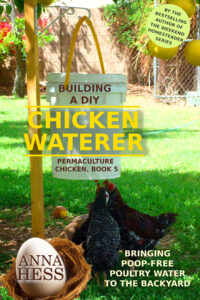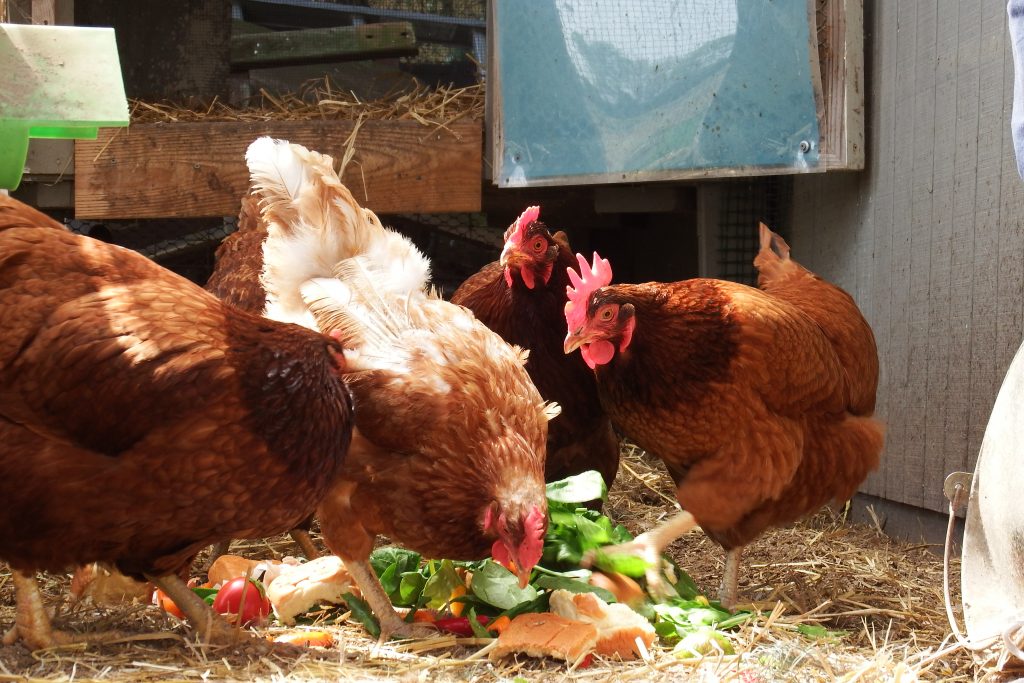![Food scraps for chickens]()
Did you know that grass and insects can make up about 20% of a chicken’s diet in the summer months? Unfortunately, cooped-up chickens don’t have access to that same scrumptious feast. But you can fill in the gaps with chicken scraps of nearly any sort.
Although some websites report that certain human foods are bad for chickens (notably dried beans, avocado stones and skins, green potatoes or tomatoes, and chocolate), I have my doubts that a non-starving chicken would even attempt to eat something hazardous. (Except possibly chocolate — but why are you throwing chocolate out?! Oh, and rotten meat — Harvey Ussery learned the hard way that dangling a corpse above the chicken coop in hopes maggots would drop in for free food wasn’t as clever as it seemed at first.)
The food scraps I actually consider hazardous in the chicken coop fit into an entirely different category. Anything high nutrient and tasty is likely to attract vermin (raccoons, opossums, rats) that will stick around and nibble on your eggs and/or flock. Specifically, I sincerely regretted giving fresh sweet-corn cobs to our flock because it jumpstarted a raccoon infestation that lingered for several months.
In the end, I recommend using your best judgement. If your flock has plenty of laying pellets around and the coop is tight enough to keep out critters, you might get away with tossing in anything at all.



